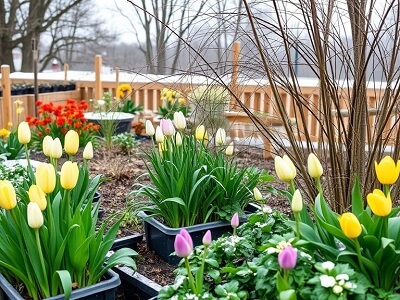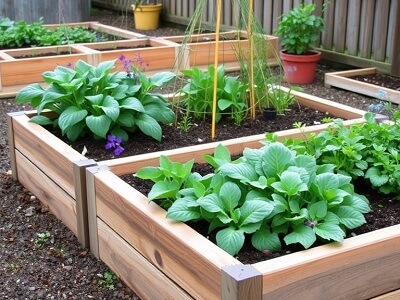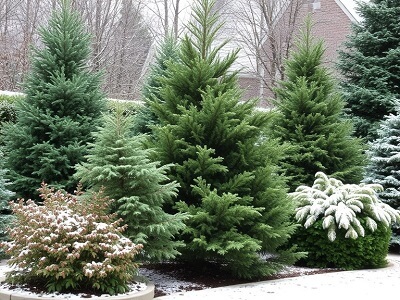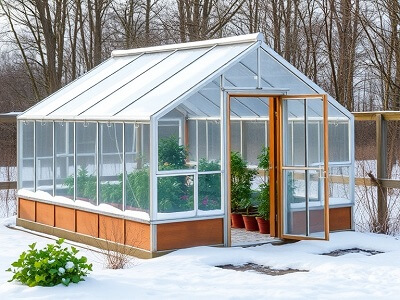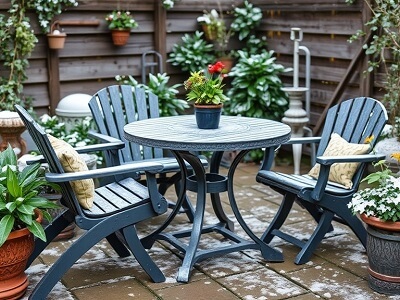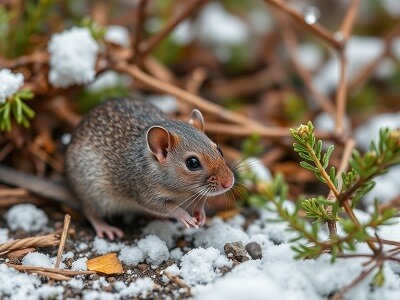 When temperatures drop, gardens often become attractive shelters for various pests, including rodents, rabbits, and insects. Keeping these pests out of your garden over winter not only protects your plants but also prevents infestations that could carry into spring. Here’s a guide to effective winter pest control for keeping your garden safe from unwanted visitors.
When temperatures drop, gardens often become attractive shelters for various pests, including rodents, rabbits, and insects. Keeping these pests out of your garden over winter not only protects your plants but also prevents infestations that could carry into spring. Here’s a guide to effective winter pest control for keeping your garden safe from unwanted visitors.
1. Clear Out Garden Debris
Garden debris provides food, shelter, and hiding spots for pests like rodents, slugs, and insects.
- Remove Dead Plants and Weeds: Clearing away dead plants, fallen leaves, and weeds minimizes hiding places for pests. It also reduces the risk of overwintering pests that could re-emerge in spring.
- Compost Properly: Use a closed compost bin to avoid attracting pests to open piles, which can become warm shelters in winter.
- Trim Back Bushes and Perennials: Trimming plants that have thick growth at the base removes potential cover for rodents, especially around the garden’s edges.
A clean garden discourages pests from taking up residence, leaving fewer places for them to hide and feed.
2. Seal Entry Points and Holes
Rodents like mice, rats, and even rabbits often seek shelter in gardens or sheds through gaps and small openings.
- Inspect Structures for Gaps: Check for small holes or cracks in your shed, greenhouse, and any nearby buildings, sealing any gaps larger than a quarter-inch with caulk or steel wool.
- Protect Raised Beds and Compost Areas: Place fine mesh or hardware cloth around raised beds and compost areas to prevent burrowing animals from entering.
- Use Barriers for Sensitive Areas: Place row covers or wire mesh over specific garden beds to keep pests from digging and burrowing.
Blocking potential entry points stops pests from getting comfortable in your garden, reducing infestations.
3. Use Natural Pest Deterrents
Natural repellents are effective and safe for the environment, and many are simple to set up.
- Essential Oils: Peppermint oil, cloves, and eucalyptus oil are strong-smelling and can repel rodents. Soak cotton balls with these oils and place them near garden entry points, around the base of plants, and in storage areas.
- Garlic and Chili Sprays: Spraying diluted garlic or chili water on plants deters pests with strong odors and tastes. It can be especially helpful around plants that tend to attract rabbits or squirrels.
- Predator Urine or Hair: Products with scents of natural predators (like fox urine) discourage rodents from entering. These repellents can be placed along the garden’s perimeter to create a scent barrier.
Natural repellents create an inhospitable environment for pests without harming plants or beneficial wildlife.
4. Encourage Natural Predators
Attracting natural pest predators to your garden helps control rodent and insect populations naturally.
- Provide Perches and Nesting Spots: Birds of prey, like owls and hawks, are effective rodent hunters. Providing tall perches, such as poles or trees, can attract these birds to your garden.
- Encourage Ground Predators: Foxes and other small carnivores can naturally reduce rodent populations. Creating natural pathways with dense plantings in certain areas can invite these predators without impacting your garden too much.
- Insect Predators for Aphids and Other Pests: Ladybugs, lacewings, and ground beetles help control insect pests. Consider introducing or attracting these beneficial insects in spring to keep the pest population low year-round.
Supporting natural predators helps control pest populations while maintaining ecological balance in the garden.
5. Install Physical Barriers
Physical barriers can effectively keep larger pests, such as rabbits, deer, and squirrels, out of your garden.
- Fencing: A tall, sturdy fence around the garden perimeter is an effective barrier against rabbits and deer. Opt for mesh or hardware cloth fencing, burying it several inches below ground to prevent burrowing.
- Row Covers: Lightweight, breathable fabric row covers can protect plants from pests while allowing light, air, and water to penetrate.
- Plant Cages and Guards: For specific plants, such as young trees or bulbs, use individual cages or mesh guards to prevent nibbling from rabbits and squirrels.
Physical barriers protect plants directly, making it harder for pests to access or damage them.
6. Manage Food Sources
Eliminating potential food sources makes your garden less attractive to pests, especially during lean winter months.
- Store Birdseed Securely: If you have bird feeders, store extra seed in sealed containers and keep feeders away from garden beds to avoid attracting rodents.
- Harvest Any Remaining Produce: Any leftover fruits, vegetables, or seeds can attract pests to your garden. Clear beds of fallen produce to reduce this temptation.
- Avoid Fertilizing with Food Scraps: Food-based fertilizers can attract animals with a strong sense of smell, like raccoons. Instead, use well-composted materials with minimal food odor.
Keeping food sources secure and out of reach discourages pests from viewing your garden as a potential feeding ground.
7. Set Humane Traps
For more persistent rodents, humane trapping can help control populations without harming them.
- Use Live Traps for Rodents: Live traps can capture mice or rats, which can then be relocated far from your garden area.
- Regularly Check and Relocate Traps: Inspect traps daily to avoid leaving captured animals too long. Release them at least a mile away in suitable environments.
- Avoid Poison Baits: Poison baits are hazardous to pets and wildlife and can create risks if other animals consume poisoned pests.
Humane trapping keeps rodent populations in check without using harmful chemicals that can affect other wildlife.
8. Monitor and Adjust Throughout Winter
Winter conditions vary, so it’s helpful to check your garden periodically and adapt your pest control strategies as needed.
- Inspect Regularly: Look for signs of pest activity, like droppings, chewed plants, or disturbed soil. Early detection helps you respond quickly.
- Replace or Refresh Repellents: Natural deterrents and barriers may need to be refreshed, especially after rain or snow.
- Adapt Based on Weather Changes: Unseasonably warm days may prompt rodent activity, while heavy snow may increase burrowing behavior. Adjust barriers and repellents accordingly.
Monitoring your garden regularly helps maintain an effective pest control system through changing winter conditions.
Final Thoughts on Winter Pest Control
Keeping pests out of your garden over winter requires a combination of prevention, natural deterrents, and consistent monitoring. With these steps, you can protect your plants and garden structures, setting the stage for a healthy, pest-free spring. Thoughtful winter pest management not only preserves your garden’s health but also supports a balanced ecosystem that benefits your garden year-round.

